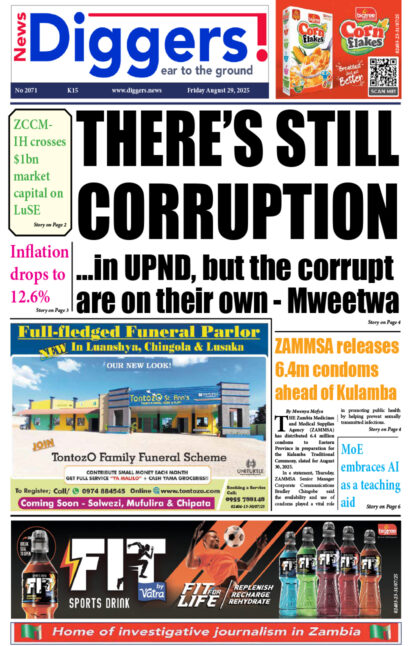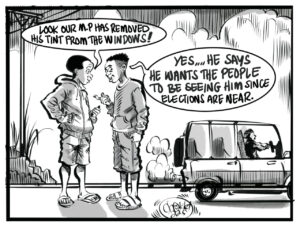VETERAN politician Vernon Johnson Mwaanga says there is need to amend the Constitution to create at least 50 special seats for women.
And Mwaanga has lamented none equal payment between women in private sector boardrooms and senior executive positions and their male counterparts.
In a statement to commemorate International Women’s Day which falls on March 8, Mwaanga said the country also needs to reserve at least 3 seats for youths and 2 seats for people living with disabilities in Parliament.
“Here in Zambia, the National Constitutional Conference (NCC), which was attended by over 500 delegates, was representative of every section of our society, made very important recommendations on this subject, which were incorporated in a draft Construction, which the MMD Government then presented to Parliament in 2011. As fate would have it, the draft constitution, falled to garner the two thirds majority to meet this threshold. At that time, 23% of all Members of Parliament were women. This percentage dropped to 11% after the general elections of 2011,” Mwaanga stated.
Representation of women in local council is even less. This is unacceptable and Parliament should amend the Constitution to create at least 50 special seats for women where they will compete among themselves using a system of proportional representation(PR), in addition to those who opt to contest Parliamentary Constituency seats. Gender parity should also be introduced for the local councils. Women voters in the 12th August 2021 tripartite elections, women represented just over 53% of the voters and men just over 46%. We also need to reserve at least 3 seats for youths and 2 seats for people living with disabilities in the National Assembly . President Hakainde Hichilema has publicly talked about the need for gender balance and equality and many of the appointments he has made so far, represent this diversity. We need a new commitment to demonstrate our urgent commitment to gender equality. We have talked enough and the time to act is now.”
And Mwaanga observed the lack of pay parity between women and men in workplaces.
“This day is intended to honour women around the world and accept them as equal partners. Since the Beijing Declaration, which set minimum standards for women to be represented equally in administrative and policy making decisions. Although some progress has been made to treat women as equal partners, international studies, continue to show that women in private sector boardrooms and senior executive positions are still paid less than their male counterparts, which is unacceptable. There must be equal pay for equal work,” stated Mwaanga.
“The African Union and SADC, took the issue of gender equality even further. They came up with protocols which demand gender equality in government, Parliament and the private sector. The country which leads the world in gender equality is Rwanda. In Rwanda there is gender equality in Parliament, Cabinet, Administration and in local councils.”























